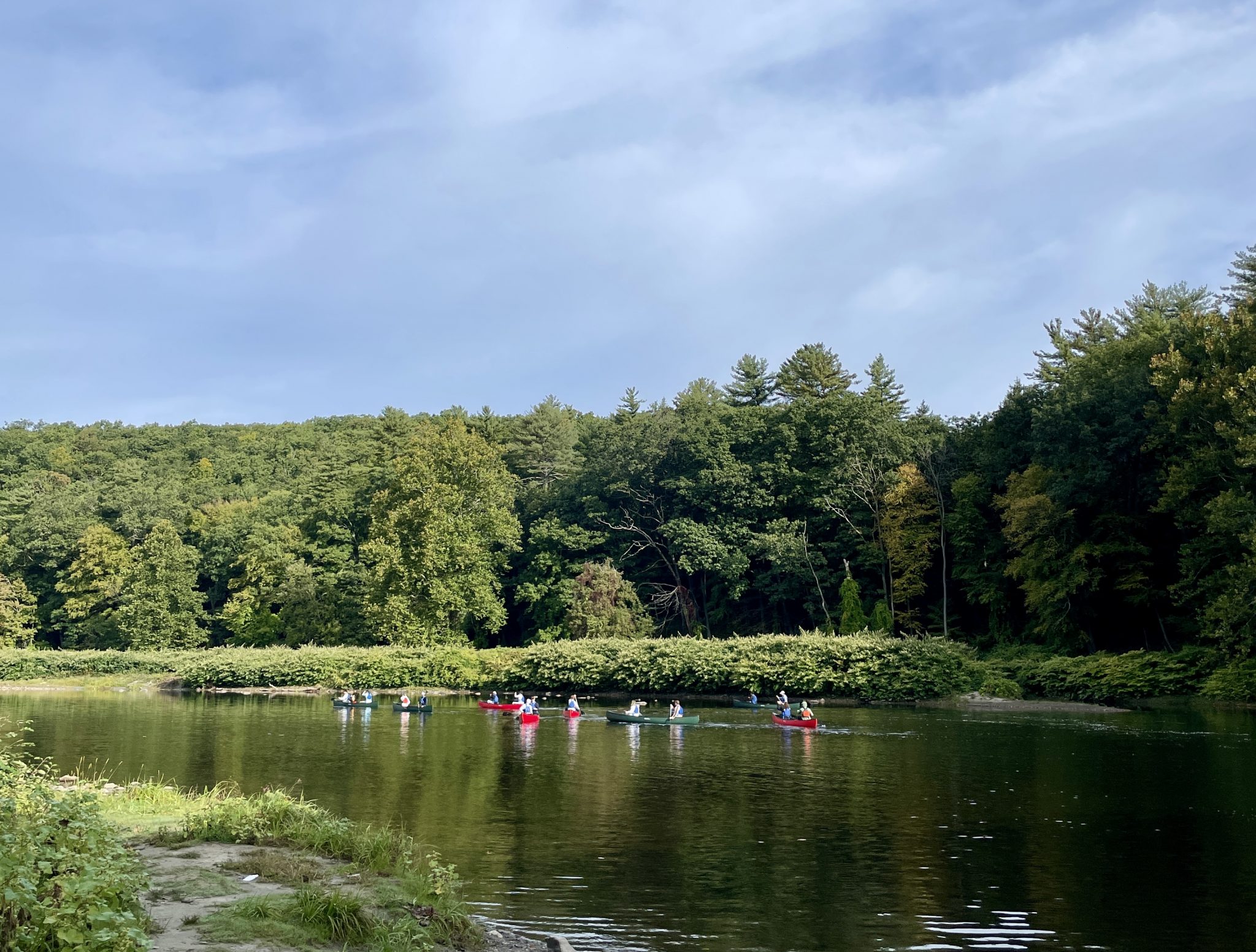Connecticut River
A stewardship paddling adventure through the Connecticut River from headwaters to home
Deerfield Academy students will join Loomis Chaffee and Northfield Mount Hermon students to participate in the “Headwaters to Home” expedition— an interdisciplinary learning adventure along one of New England’s most prominent ecological features, the Connecticut River. Following a place-based training and orientation program in Vermont’s Northeast Kingdom, the group will depart the Connecticut River’s headwaters by canoe, paddling south past all three campuses. Stops along the way will include prominent sites and conversations with local experts in art, geology, hydrology, and Indigenous history and culture. These experts will help us contemplate how a river creates a living place and how people have made a home beside it. The program encourages students to explore the Connecticut River’s significance through diverse perspectives, while fostering intellectual diversity through expert conversations across disciplines. By the time we pull our boats out of the water, we will have developed an intellectual, emotional, and embodied understanding of this watershed as both a socio-ecological entity and a metaphor for something larger–a paradigm for living well in a place wherever we go.
Program Dates
June 4 – June 13, 2025
Program Eligibility
This trip is open to ninth, tenth, and eleventh grade students with a preference for those with a demonstrated interest in outdoor activities and place-based stewardship. No paddle experience is required. Financial Aid is available to all qualifying students.
Faculty Trip Leaders
Ava Goodale
Estimated cost: $2,750
This price is subject to change depending on enrollment numbers. The final price will be set before initial deposits and enrollment paperwork are due.

Program Notes
- This trip conflicts with the June 8 ACT test date.
- This is an “unplugged” trip where students will not have access to cell phones or internet for the duration of the trip.
- Students and faculty leaders will update families and friends at home through our Notes From The Field blog.
- The program contains outdoor activities such as hiking, canoeing, and swimming, and most of the trip accommodations are at campsites. While no prior experience with outdoor activities is required, a willingness to lean into discomfort will be key.
2025 Preliminary Itinerary
*This itinerary is subject to change.
The trip begins with lunch and orientation at Quimby Country Cottages in Vermont, followed by a hike and a fireside conversation in the evening. The next day starts with yoga or a swim, breakfast, and an outdoor activity, such as fly fishing or mountain biking. After lunch, the group will engage in a conversation with a local wildlife expert and learn how to canoe. That evening, the group will enjoy a reading by Matt Miller from Tender the River.
Morning yoga or swimming and breakfast continue as a daily routine. The group then departs for the first day on the Connecticut River. Each day, the group will canoe a stretch of the river, stopping at important sites, meeting local experts, participating in classes and discussions, and enjoying riverside meals, campfires, and campsites. All told, these experiences will be an exploration within and across stewardscapes, known as the places where we envision and engage in stewardship systems of knowledge, action, and care.
Example activities include a stakeholder analysis at a dam removal site, mapping our stewardscape, and a tour of a wastewater facility. Guests include Abenaki elders, wildlife photographers, government officials, conservation scientists, and more. After passing through four states and passing by each school’s campus, the group eventually makes their way to the confluence of the Connecticut River and Long Island Sound in Old Lyme. The trip concludes with final reflections, celebrations, and goodbyes.